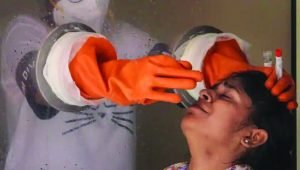![]()
Recent studies suggest that those recovering from COVID-19 may have antibodies for only a few months, a signal that long-term immunity is difficult to achieve, but several scientists dispel the gloom and say it is too soon to determine if such individuals can contract the disease again.
Some special cells of the immune system may still offer protection against the disease, the scientists said as questions swirl on whether people who have recovered from COVID-19 can get it again — even those whose antibodies dwindle progressively as the days and weeks pass.
It is too soon to say whether people with lowered levels of novel coronavirus-blocking antibody levels (nAbs) after recovery are at risk of contracting the COVID-19 disease on re-exposure to the virus, Vineeta Bal, an immunologist from the Indian Institute of Science, Education and Research in Pune, told PTI.
“This pandemic is only six-seven months old, and reports of people testing positive for the virus for a second time, post-recovery, are mostly only from those who were first infected in January,” Bal said in a video interview. 
The discussion – and disquiet amongst laypersons following news of the pandemic – intensified when a yet-to-be peer-reviewed study, published in medRxiv last week, assessed 90 recovered COVID-19 patients in the UK and found their nAbs decreased between two fold and 23-fold during an 18-65 day follow-up period.
Another study, published last month in the journal Nature Medicine, surveyed the levels of antibodies in COVID-19 patients, including those who did not show symptoms, and revealed that nAbs lasted only two to three months after recovery. While reports of people testing positive for re-exposure to the virus emerge, it does not necessarily mean that those losing nAbs will develop the disease, said Bal, who was a member of the Prime Minister’s task force for women in science under the Ministry of Science and Technology.
While antibody levels, as indicated by the two studies, may decrease in recovered individuals, other immune system players may still offer longer lasting immunity.
“Some reports say detectable T cells which may fight off infection and prevent the COVID-19 disease on re-exposure, can offer protection,” Bal said.
Commenting on the implications of the studies, immunologist Satyajit Rath from the National Institute of Immunology in New Delhi, said the findings are in line with how the human immune system interacts with coronaviruses such as those causing the common cold.






